Ministry of Culture
“River conservation is being pursued through short-, mid-, and long-term plans”. Shri C.R. Patil, Union Minister of Jal Shakti
Minister of Jal Shakti, Shri C.R. Patil, inaugurated the 6th Nadi Utsav at IGNCA
Posted On:
26 SEP 2025 9:20AM by PIB Delhi
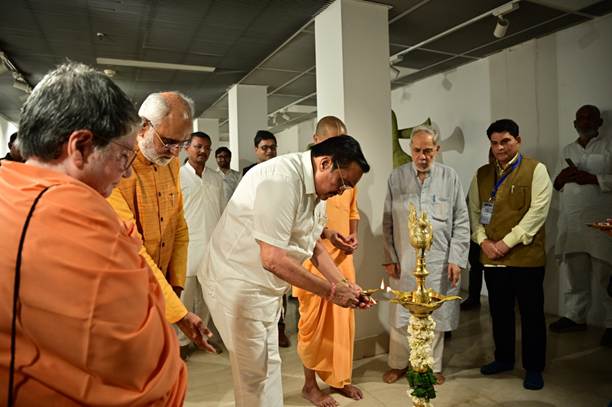
The 6th edition of Nadi Utsav, organised by the Indira Gandhi National Centre for the Arts (IGNCA), Ministry of Culture, Government of India, was inaugurated by the Minister of Jal Shakti, Shri C.R. Patil, today at IGNCA, Janpath, New Delhi. The inaugural session was also graced by Shri Gaurang Das, Spiritual Leader, ISKCON; Sadhvi Vishudhanand Bharti Thakur; Shri Rambahadur Rai, President, IGNCA; and Dr. Sachchidanand Joshi, Member Secretary, IGNCA.
Celebrating rivers as vital ecological lifelines and cultural reservoirs, the festival opened to an enthusiastic gathering of scholars, artists, practitioners, and students. In his inaugural address, Shri C.R. Patil asserted the significance of rivers in sustaining communities and shaping India’s cultural ethos. He emphasised the need for collective responsibility in preserving rivers for future generations. He remarked, “India is a land of rivers. The world’s finest river, the Ganga, flows in India. It is our duty not to pollute our rivers.” He further stated that work is being carried out at three levels- short-term, mid-term, and long-term-towards river conservation. Under the leadership of Prime Minister Shri Narendra Modi, significant efforts are being undertaken through Water Vision@2047.
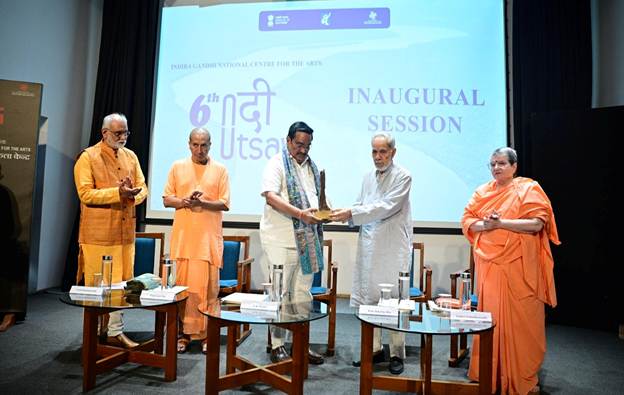
Highlighting the cultural significance of rivers, he said that rivers are not merely resources but the very current of our emotions and culture. He cautioned that human intervention has caused immense damage to rivers, and their conservation is a shared responsibility. He also commended IGNCA for the continued organisation of Nadi Utsav.
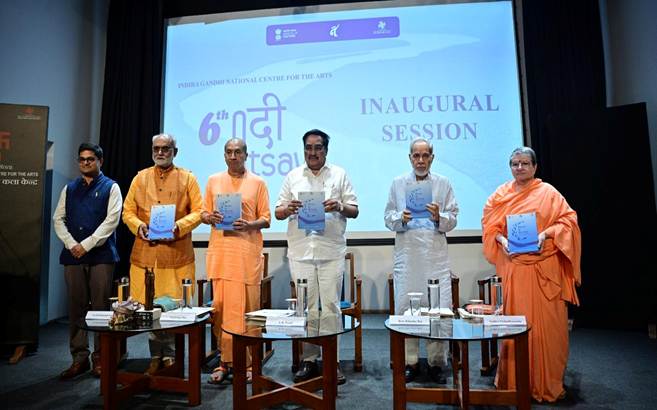
On this occasion, Shri Gaurang Das said that rivers are not merely streams of water but symbols of strength, energy, and the constant progress of life. Just like the Ganga, which finds its way from Gangotri to the Bay of Bengal despite numerous obstacles, we too must maintain hope and direction in the face of life’s adversities. He added that rivers are the flow of our culture and sensibility, teaching us that challenges can be transformed into opportunities through energy and hope. Expressing concern over the present condition of the Yamuna, he stressed that the conservation of rivers is our shared responsibility and commended IGNCA for the continued organisation of Nadi Utsav.
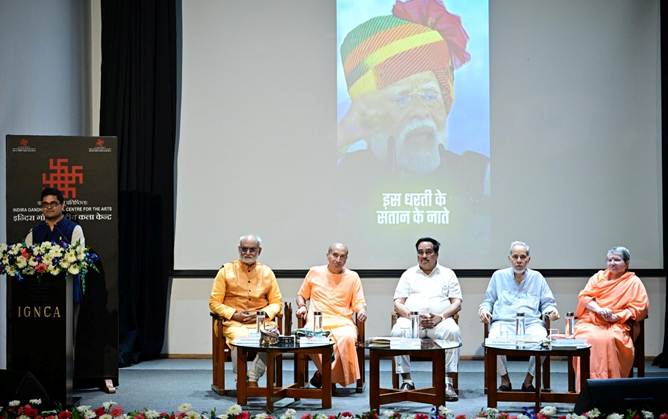
Sadhvi Vishudhanand Bharti Thakur shared her experiences with rivers, spanning from Ishanya Bharat (North East India) to southern Kanyakumari. She emphasised that people should engage in a meaningful dialogue with rivers, recognising the wealth they offer. She further highlighted that, alongside their cultural and spiritual significance, the ecological diversity of rivers must also be studied and taken seriously.
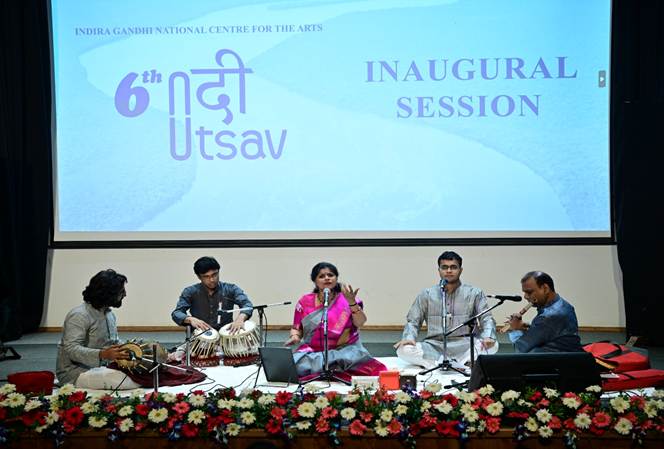
Shri Rambahadur Rai said that rivers are not merely streams of water but embody our culture, faith, and responsibility. Recalling his experience of a Yamuna journey in Delhi during the 1980s with Anupam Mishra, he noted that even at that time, 26 drains were flowing into the river, highlighting the gravity of its crisis. He expressed hope that with ongoing efforts, the Yamuna would eventually become clean. He further remarked that today, with concrete initiatives being undertaken for cleaning the river and constructing embankments, a sense of optimism is visible. Shri Rai, while referring to personalities such as Pandit Madan Mohan Malaviya and Sunderlal Bahuguna, emphasised that society must remain vigilant and proactive in safeguarding the uninterrupted flow of rivers. He urged that Nadi Utsav should not remain merely a celebration but evolve into a continuous reminder of our duties towards rivers.
Dr. Sachchidanand Joshi, while welcoming the guests, said that river culture profoundly impacts society. He noted that urban lifestyles have distanced us from our connection with rivers. As the pace of development increased and human exploitation of nature grew, our bond with the natural world weakened, transforming into a consumerist relationship. The purpose of Nadi Utsav is to inspire feelings of reverence, enthusiasm, devotion, and faith towards rivers.
The first day of the three-day festival saw the commencement of the National Seminar on “Riverscape Dynamics: Changes and Continuity”, which brought together eminent scholars and experts to share perspectives on the cultural, ecological, and artistic dimensions of rivers. More than 300 research papers were received in connection with the seminar, of which 45 will be presented during the sessions. The segment is being held in collaboration with the English Department of the University of Delhi.
Running parallel to the seminar, the “My River Story” Documentary Film Festival presented its opening screenings, featuring thought-provoking films including “Gotakhors: Disappearing Diving Communities”, “River Man of India”, “Arth Ganga”, “Yamuna’s Sewage Treatment Plant”, “Cauvery – River of Life” and others . These films shed light on ecological concerns, traditional practices, and the deep-rooted human connection with river systems, highlighting how rivers continue to shape lives and landscapes.
Nadi Utsav showcases a profound dialogue between tradition and contemporary practices, ensuring that communities remain connected to their riverine roots. The inaugural session concluded with enthusiastic participation from river enthusiasts and meaningful discussions, setting the stage for the sessions, demonstrations, and exhibitions over the next two days. At the end of the session, Prof. K. Anil Kumar, Head of Department, Janapada Sampada, delivered the vote of thanks. The inaugural day concluded with classical renditions on rivers by Guru Sudha Raghuraman and her team, captivating the audience.
The three-day river festival will continue until 27th September 2025, featuring cultural programmes, exhibitions, and discussions aimed at reaffirming the deep interconnections between rivers, ecology, and culture.
****
Sunil Kumar Tiwari
pibculture[at]gmail[dot]com
(Release ID: 2171542)
Visitor Counter : 1549